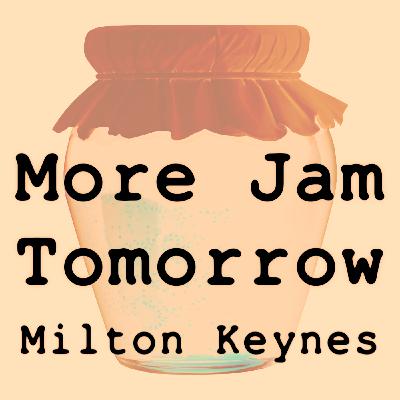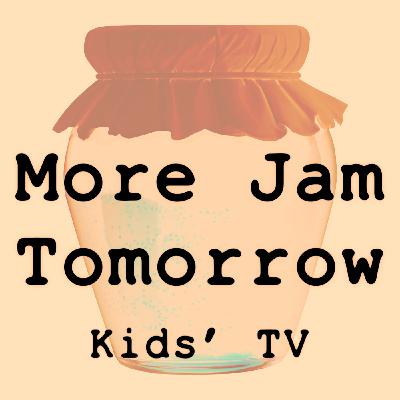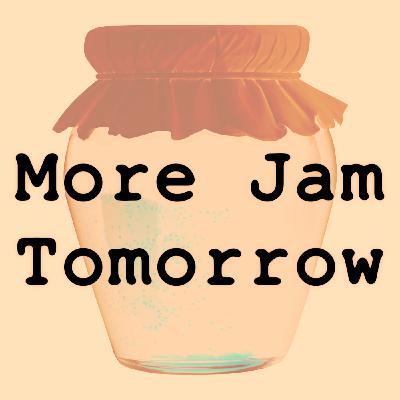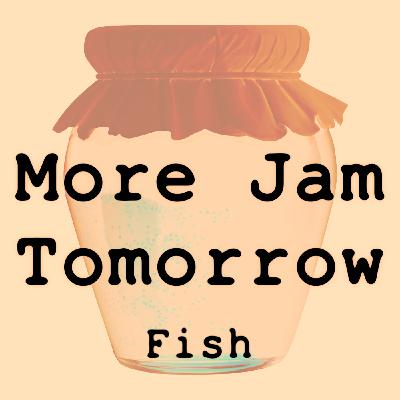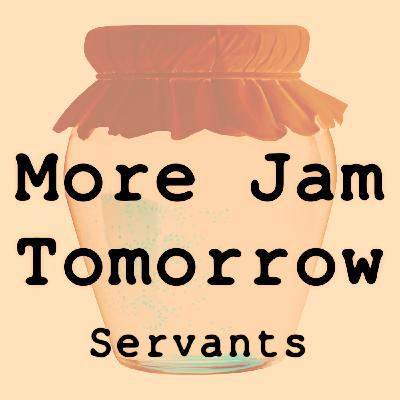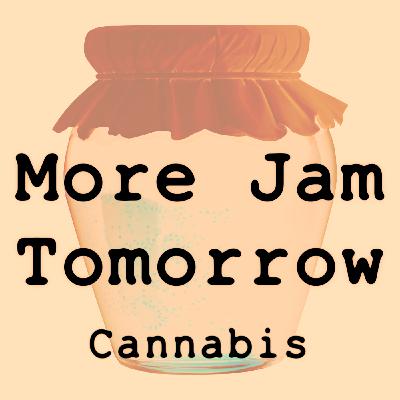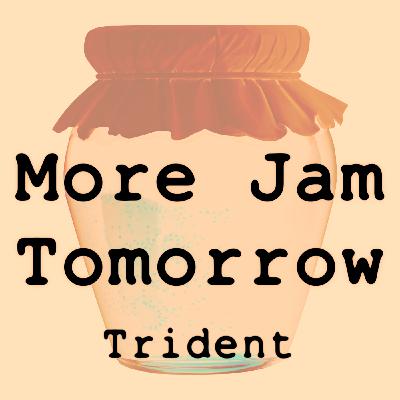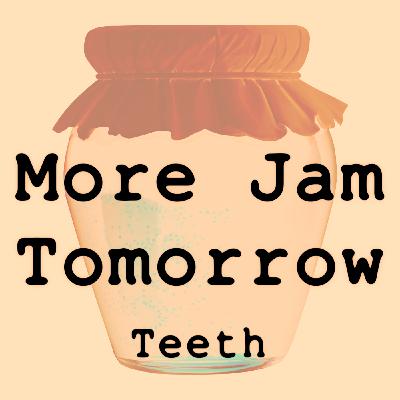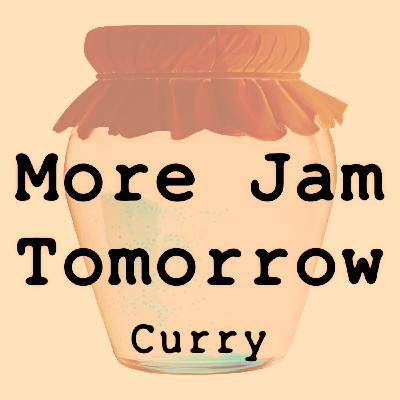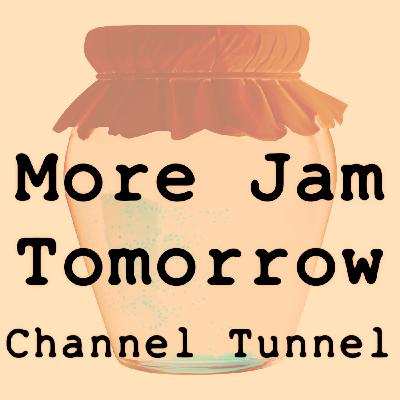Discover More Jam Tomorrow
More Jam Tomorrow

More Jam Tomorrow
Author: Ros Taylor
Subscribed: 85Played: 928Subscribe
Share
©️ 2025 More Jam Tomorrow
Description
From teeth to Trident — post-war British history as you've never heard it before.
In each episode, Ros Taylor delves into the truth about how our lives changed after World War Two — and what it means for politics now.
Now independent, this is the sequel to the hit "Jam Tomorrow" podcast.
In each episode, Ros Taylor delves into the truth about how our lives changed after World War Two — and what it means for politics now.
Now independent, this is the sequel to the hit "Jam Tomorrow" podcast.
11 Episodes
Reverse
It’s built for cars. The buses are baffling. But it’s got the most energy efficient housing in Britain. What did it take to build a city from almost nothing? And a university where there are no students on campus? With architectural historian John Grindrod, Ros Taylor tells the story of Milton Keynes and the Open University. With thanks to John Grindrod, the author of Iconicon, Concretopia and Outskirts and the presenter of Monstrosities Mon Amour. His forthcoming book, Tales of the Suburbs, on LGBTQ people in suburbia, is out in February 2026. Seth Thévoz read Lords speeches by Baron Richard Mitchison and Lord Gerald Gardiner, both in Hansard. Milton Keynes: Shopping as it Should Be and an ITN report from 1967 are available on YouTube. Clips of Harold Wilson and Jennie Lee are at the Open University Digital Archive, which explains the OU’s founding. This was an invaluable source of OU history. I also drew on the vast resources at the Milton Keynes Living Archive and the original Plan for Milton Keynes.
It was silly. It was addictive. For decades, millions of kids would gaze at the same people and laugh at the same jokes at the same time. How did children’s TV shape their minds? And what will it look like in a world of unlimited digital content? Ros Taylor talks to Anna Home, who joined the BBC in the 1950s, and screenwriters Chitro Soundar and Angela Salt. Anna Home was an English TV producer and executive and is the chair of the Children’s Media Foundation. She is the author of Into the Box of Delights: A History of Children’s Television. Chitra Soundar is the author of Nikhil & Jay and a writer for children’s books, TV and theatre. Angela Salt is a screenwriter for international children’s TV. Herbert Morrison was speaking in the Commons in 1952 about the BBC charter. The BFI and the Science and Media Museum have useful resources on early kids’ TV. This is the first episode of Play School. Episodes of Grange Hill, Jackanory, Basil Brush, Thunderbirds and many other series are available on YouTube. The BBC interviewed people about Grange Hill in 1980.
More Jam Tomorrow is taking a two-episode break. We'll be back in less than a month, on 28th August. In the meantime, I have one big ask. Please let me know if you would support a fifth series of Jam. Just go to morejamtomorrow.com and hit the link at the top of the page that says "Have Your Say on Series 5." Or just click here: https://tally.so/r/wv85Xd See you on 28th August, when we'll be back with episode eight.
Pound for pound, fish is small fry for the British economy – but it has long been vital to our sense of sovereignty. From skirmishes with Dutch boats to the Cod Wars and Brexit, Ros Taylor finds out why fish matter so much to us. Maritime historian Richard Blakemore and marine biologist Bryce Stewart join the show. Richard Blakemore is an Associate Professor in social and maritime history at the University of Reading. He’s the author of Enemies of All: The Rise and Fall of the Golden Age of Piracy, published by Pegasus Books. Bryce Stewart is a senior research fellow at the Marine Biological Association. Voiceovers are by Seth Thévoz. The MPs quoted are James Johnson (Kingston-upon-Hull West), Patrick Wall (Haltemprice) and John Prescott (Kingston-upon-Hull East). The extract from the Shipping Forecast is from a five-hour YouTube compilation. I drew on The fishing industry (Commons Library), The Cod Wars Explained (Imperial War Museum), Rethinking Sovereignty and Security at the Maritime Frontier (Coventry University), Fisheries Management in United Kingdom Waters After Brexit (Robin Churchill), Eaux britanniques: les poissons de la discorde (France Culture), and The Sovereignty of the Sea (T W Fulton). MORE JAM TOMORROW was written and presented by Ros Taylor. The producer was David Turnbull. Music was by Dubstar. MORE JAM TOMORROW is a KTC production.
“No matter how hard you work or how capable you are, you can't do it all yourself. You have to seek reliable help.” Those were Margaret Thatcher’s words in 1990. Who are the ‘help’? How did they enable women to have successful careers? Ros Taylor talks to Lucy Delap and Emma Casey about how the servant died out after the two world wars – but domestic help never went away. Lucy Delap is Professor in Modern British and Gender History at the University of Cambridge. She is the author of Knowing Their Place: Domestic Service in Twentieth Century Britain. Emma Casey is the author of The Return of the Housewife: Why Women are Still Cleaning Up. She is a reader in sociology at the University of York. Voiceovers were by Seth Thévoz. The Hoover ad (1987) is at The Laundry Lab YouTube channel. The Findus Crispy Pancakes ad is part of a YouTube compilation. I drew on Lucy Delap’s ‘Yes ma’am: domestic workers and employment rights’, Mistress and Maid at the Wiener Holocaust Library, Helen McCarthy’s chapter on feminism, family and work in The Neoliberal Age: Britain since the 1970s (UCL Press, 2021), Margaret Thatcher’s Pankhurst Lecture (1990), Silvia Federici’s Wages Against Housework (1974), and the University of Aberystwyth’s Domestics - Refugees from National Socialism in Germany.
Cannabis. It’s illegal in the UK without a prescription – and despite decriminalisation abroad, it’s likely to stay that way. When did people start smoking cannabis in Britain? Why is the law against it so patchily enforced — but apparently impossible to repeal? Ros Taylor talks to Prof Toby Seddon and former stoner Ian Dunt about the weed. Keep More Jam Tomorrow going by contributing to our tip jar at Ko-fi. Sweet. Toby Seddon is Professor of Social Science, head of the UCL Social Research Unit and the author of Rethinking Drug Laws: theory, history, politics (Oxford University Press). Ian Dunt is a journalist and author. Audio clips are from This Week: Cannabis (1967), Hyde Park London Pot Rally and Keir Starmer interviewed by ITV. The politicians’ speeches voiced by Seth Thévoz can be found in Hansard. I drew on the 2024 Crime Survey, extracts from Dope Girls: the birth of the British drug underground by Marek Kohn, figures on drug seizures, the Irish National Drugs Library, The cannabis class: what happened when the legal status of cannabis was reclassified (Ian Hamilton) and the London Literary Society’s blog on Colin Macinnes. Getty has pictures of people dancing at the Paramount Dance Hall in 1949.
Seventy years ago, on an island off Australia, we started something we couldn’t finish. This is the story of Britain’s nuclear deterrent, Trident — why we have it and why we can’t let go of it. Keep More Jam Tomorrow going by contributing to our tip jar at Ko-fi. Sweet. Prof Mary Kaldor is Director of the Conflict Research Programme at LSE IDEAS. Dr Matthew Grant is Reader and Head of the School of Philosophy, Historical and Interdisciplinary Studies at the University of Essex. His forthcoming book Britain's Cold War Home Front: Citizens and the State will be published by Oxford University Press, and he is the author of National Service Life Stories: Masculinity, Class, and the Memory of Conscription in Britain. The Operation Hurricane public information movie (1953) is available on YouTube, as is Bertrand Russell’s 1959 speech at the Manchester Free Trade Hall and The Prime Minister’s TOP SECRET trip to a nuclear submarine (10 Downing Street). Parliamentary speeches read by Seth Thévoz are in Hansard. The extract from the West Australian newspaper is in the National Library of Australia. I also drew on Suzanne Doyle’s Preserving the Global Nuclear Order: The Trident Agreements and the Arms Control Debate, 1977-82 (International History Review), Matthew Grant’s Upgrading Britain's nuclear deterrent: from V-Bombers to Trident replacement (History and Policy), Nick Ritchie’s Trident and British Identity: Letting go of nuclear weapons and Ian Davis’ The British Bomb and NATO: Six Decades of Contributing to NATO’s Strategic Nuclear Deterrent (SIPRI/ Nuclear Education Trust). The Commons library briefing Replacing the UK’s Nuclear Deterrent: Progress of the Dreadnought Class was also useful.
When you need to see a GP, you can - though you might have to wait a couple of weeks. But half the people who need an NHS dentist have no realistic chance of finding one. Tooth pain is agonising. So why is dentistry so neglected by the government? Is it because we prefer to think bad teeth are … well … probably your own fault? Ros Taylor asks professor of dentistry Ian Mills why it’s so hard to find an NHS dentist and how the way we think about our teeth has changed since the war. And Dr Charlotte Sleigh tells the story of the furious campaign against fluoridation in the 1960s. The British Dental Association’s Dental Witness Seminars: dentistry in the UK since 1948 (N.H.F. Wilson and S. Gerbier, 2016), the House of Commons’ Health: Fifth Report (2008) and the Committee of Public Accounts’ Fixing NHS Dentistry: 21st Report of Session 2024-25 (April 2025) were invaluable. Dr Charlotte Sleigh talks about her Royal Society report, Fluoridation of drinking water in the UK, c1962-67: A case study in scientific misinformation before social media. Seth Thévoz read speeches by Lord Douglas of Bardoch, John Cronin MP and Michael Meacher MP, all from Hansard. The Fudge advert is part of a YouTube compilation. Toothpaste ads are Gibbs SR (1955) and Aquafresh. Public information ads are Look After Your Teeth (1979) and Jeremy’s Toothache (1975). Audio editing is by David Turnbull. More Jam Tomorrow is a KTC production.
Queen Victoria loved a curry, but it took the entrepreneurial efforts of South Asian migrants for it to become part of the British diet. How did it go from Windsor Castle to M&S ready meals and Dishoom? Ros Taylor looks at how curry got political with historian Shrabani Basu and Professor Anand Menon of King’s College, London. You can support More Jam Tomorrow at https://ko-fi.com/morejamtomorrow Show Notes Anand Menon is Professor of European Politics and Foreign Affairs at King’s College London and the director of The UK in a Changing Europe. Shrabani Basu is the author of Victoria & Abdul: The Extraordinary True Story of the Queen’s Closest Confidant. Lord Soper’s speech is on Hansard. I am also grateful to Nishah Malik for the extract from London Life magazine.
Episode 1: Channel Tunnel How did the Channel Tunnel get built? And why has it not quite lived up to its promise? You can support More Jam Tomorrow at https://ko-fi.com/morejamtomorrow Show notes Jon Worth blogs about European rail. The opening speech is from Shakespeare’s Richard II. I am grateful to Terry Gourvish, the author of The Official History of the Channel Tunnel (Routledge) for insights into the long process of getting the tunnel built. How John Bull Lost London is available at the Internet Archive. I also drew on The Churchill Project, BNP Paribas’ Origins of the Channel Tunnel 1957-87, Peter Keeling’s essay at Public Domain Review, material from the National Archives and INA footage from 1975. Politicians’ speeches are from Hansard. The 1998 Eurostar ad features Antoine de Caunes.
How did it feel to watch the Channel Tunnel breaking through? The NHS made dentistry free – so why were British teeth still so bad? And what did police find at Club Eleven in 1950 that would change how we saw the world? All this and more in season 4 of MORE JAM TOMORROW. Subscribe now to get every episode. Support the newly independent podcast at ko-fi.com/morejamtomorrow and get a shout out on the next episode.


